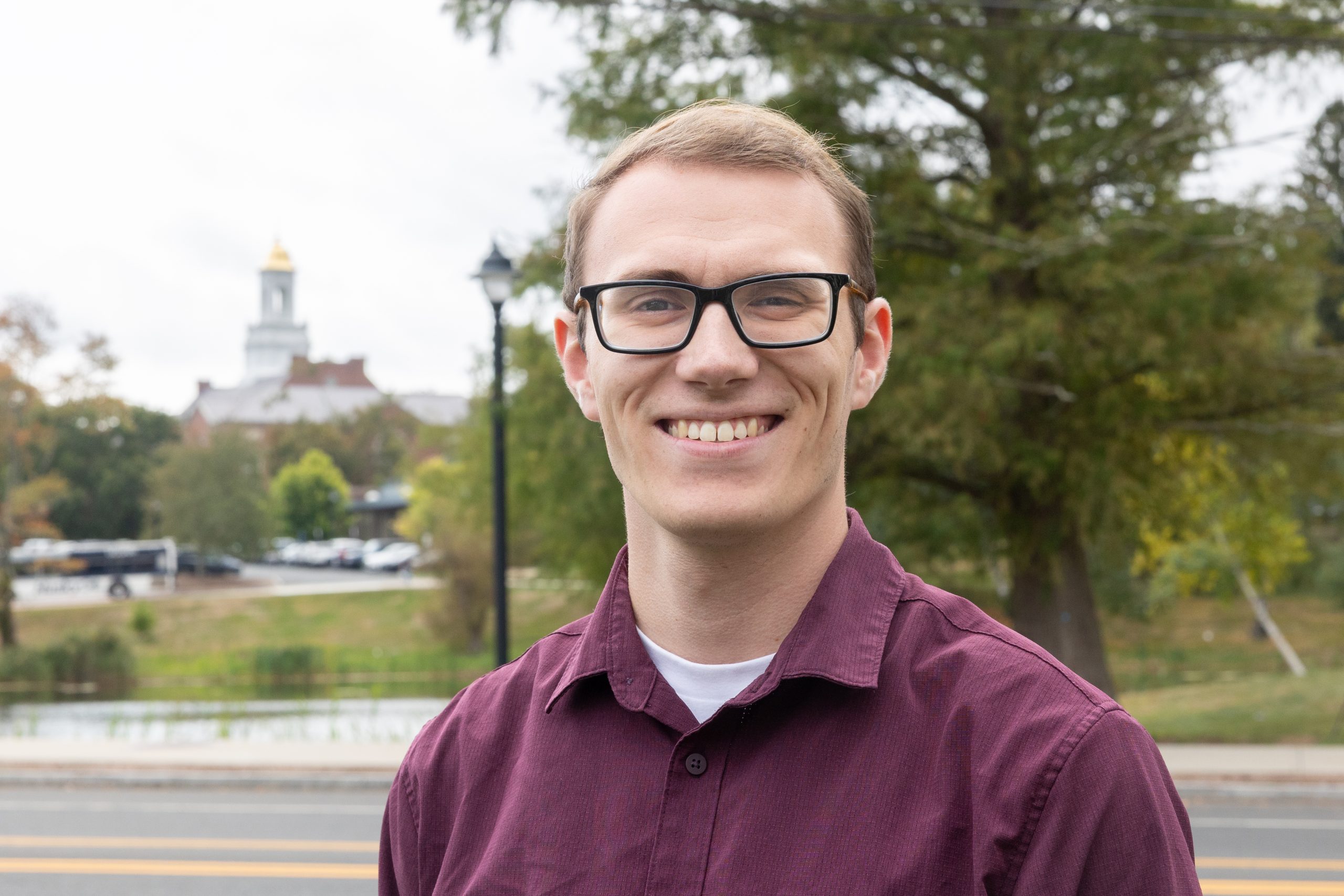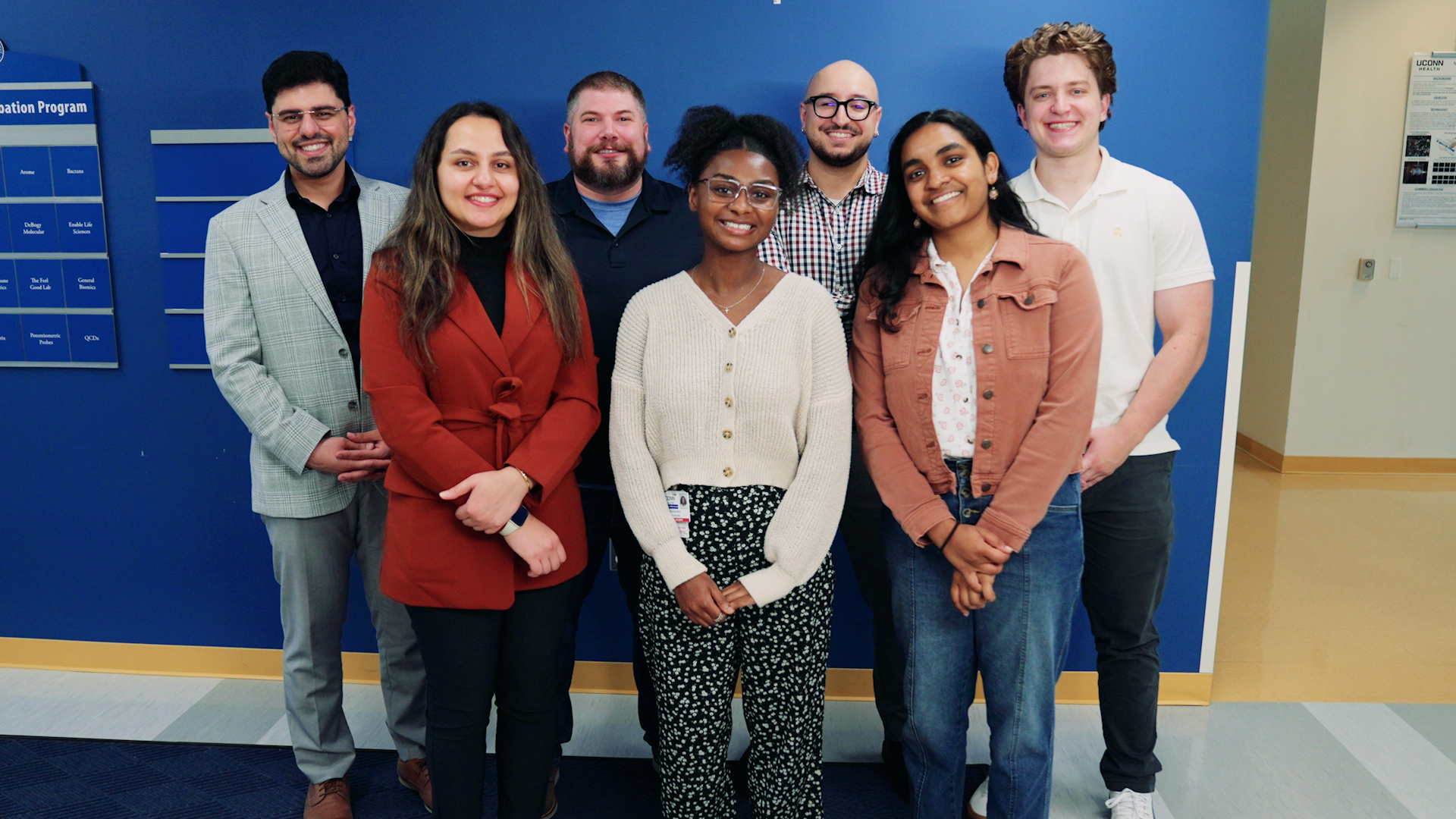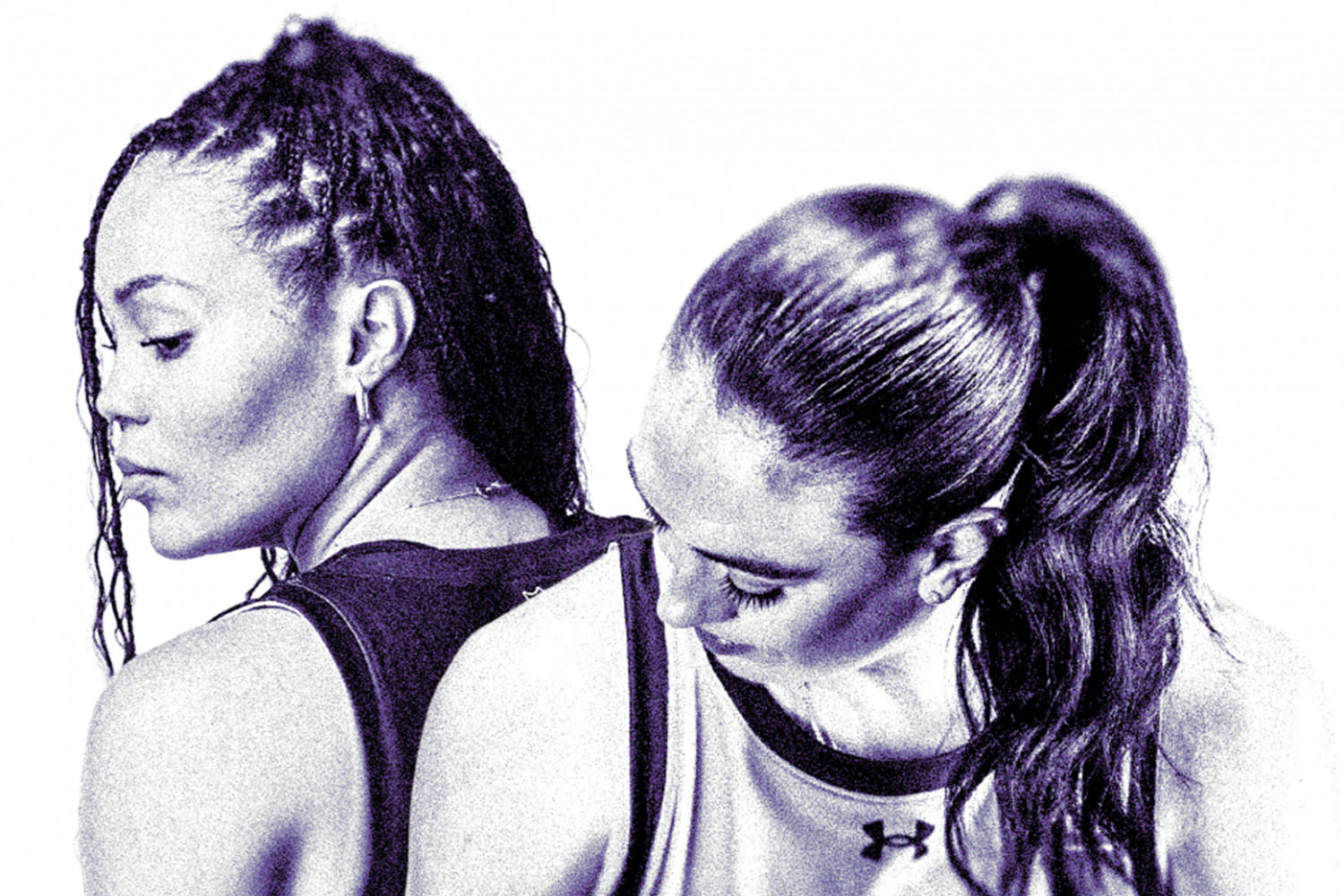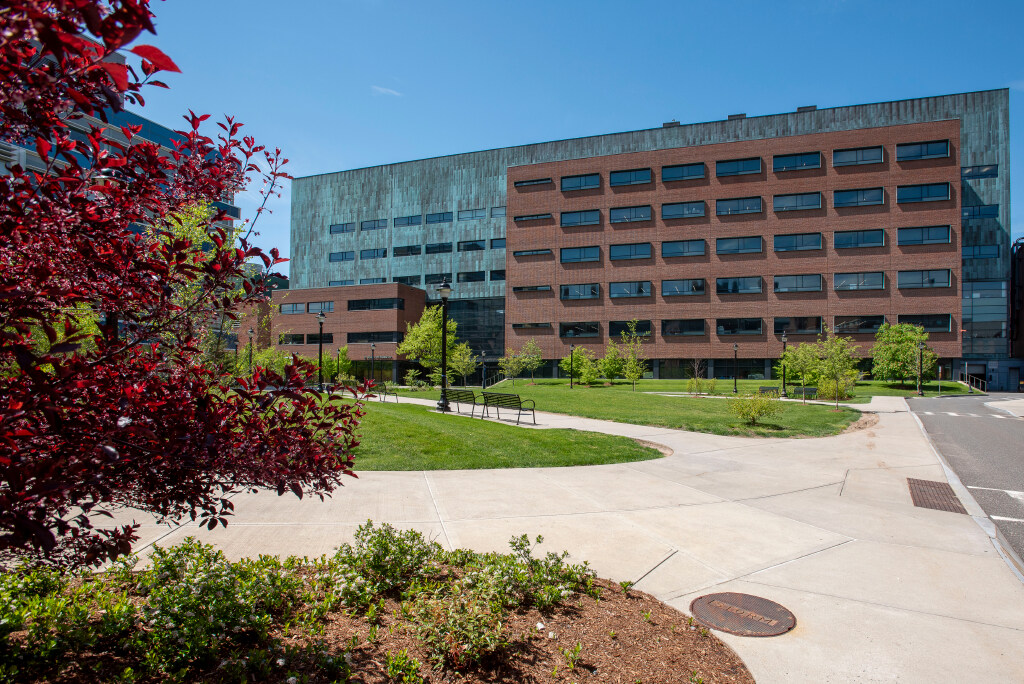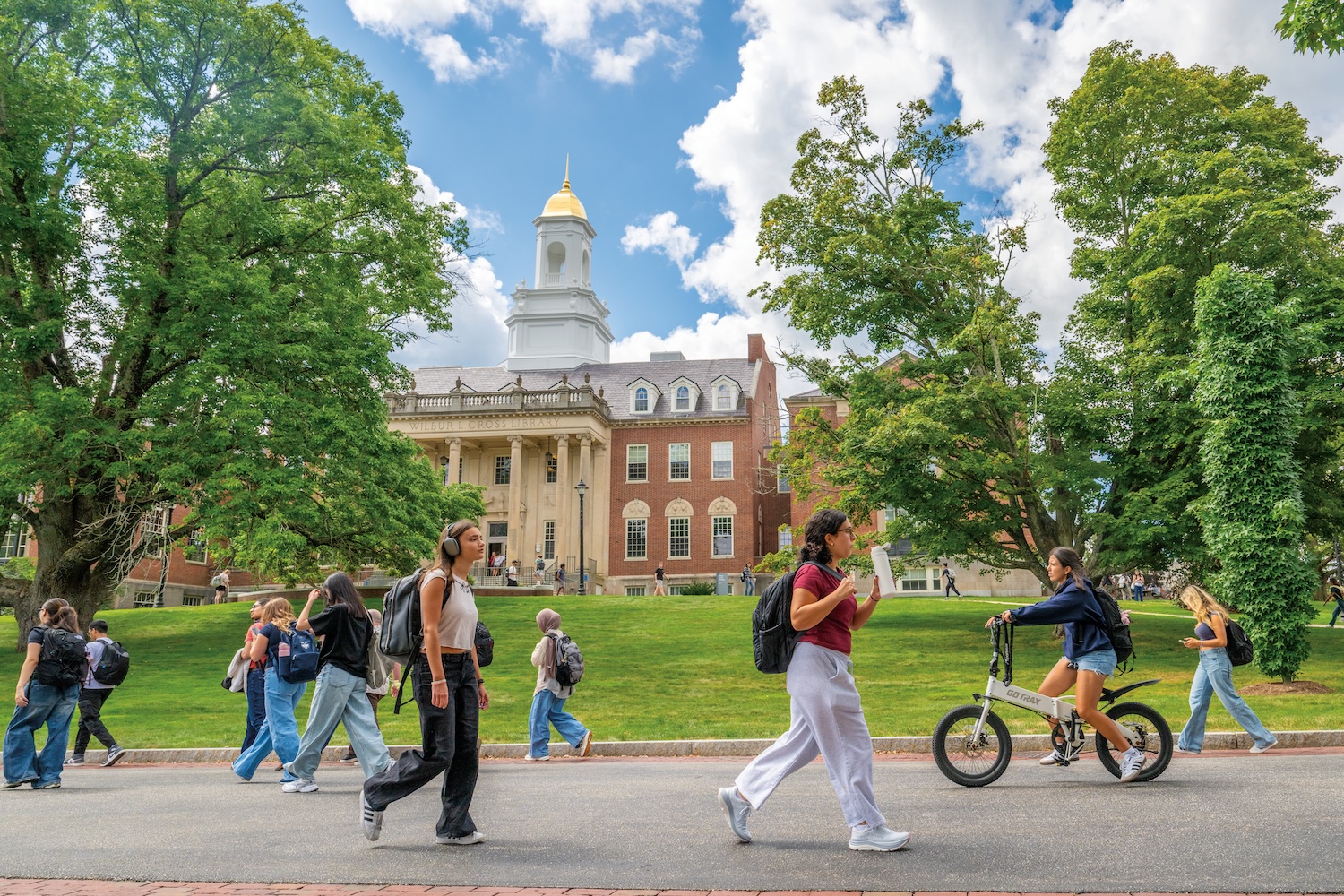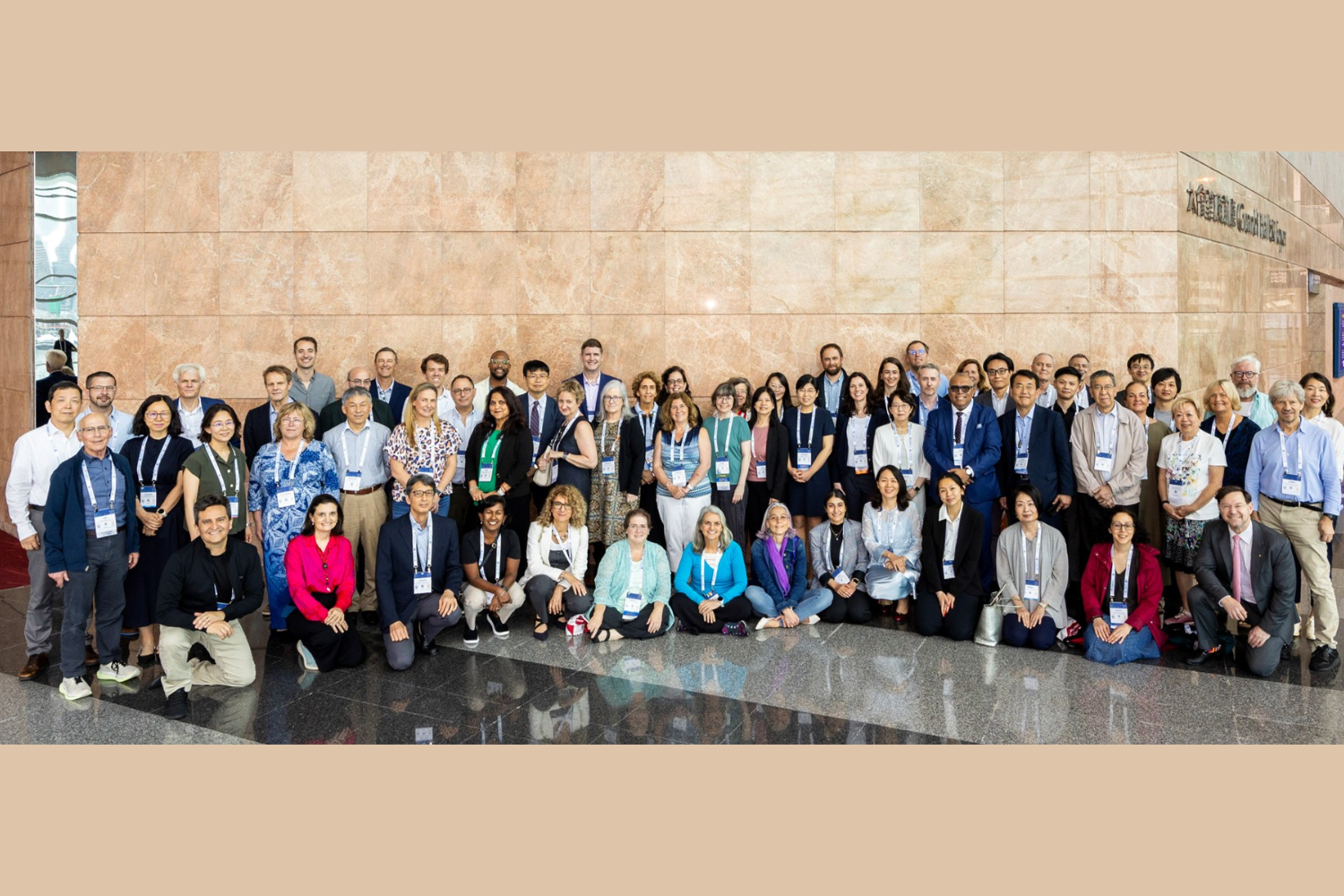What Happens When Local Hospitals Stop Delivering Babies? UConn Anthropology Student is Hoping to Find Out
In 2020, amidst the global COVID-19 pandemic, the labor and delivery unit at Windham Hospital was shuttered.
The hospital’s owner cited low demand and rising costs as their reasons for closing the unit. A three-year saga ensued, with advocates and community organizers raising concerns about access to care for area residents, and hospital officials insisting that dropping birthrates in the region required consolidation of services to other facilities, primarily Backus Hospital in Norwich, about 17 miles away.
“In 2015, there was an OBGYN practice that was based out in the hospital that moved to Manchester, so the thought process is that a lot of people followed them to Manchester,” explains Bryce Turner ’26 (CLAS). “They were claiming that there just weren’t enough births. But the births didn’t start to truly drop off until after the practice left. So, it’s like a chicken or egg situation.”
In 2023, the state’s Office of Health Strategy finalized the terms of the unit’s closure – it’s now been nearly five years since a baby has been born at Windham Hospital.
The trend toward consolidated medical services in rural communities, and maternal health care in particular, isn’t new or limited to Connecticut. A 2020 study published by the Journal of the American Medical Association found that 53 rural counties nationwide lost obstetrics care from 2014 to 2018 – and 1,045 rural counties never had hospitals with obstetrics services in the first place.
But when it comes to health care decision making, how do we choose who gets care and who doesn’t?
And how do those decisions impact actual people?
The answers to those questions are something that Turner wants to understand, and he’s doing so by focusing on the end of birthing services at Windham Hospital.
Who We Are
Turner grew up in Newington, and originally came to UConn on a pre-med track.
“But as I went along in my first two years and got experience working in a clinical setting, I was like, this is really cool, but not for me,” Turner says. “My goals in being a clinician were to make changes in the health care system. And after being in those spaces, I realized that it’s really, really difficult to do that from within the space when you have to deal with the day-to-day of patients and insurance and everything like that.
“And there are some amazing people out there who somehow manage to do that. But I knew that probably wasn’t going to be my path.”
As a sophomore in high school, he had the opportunity to take an anthropology course at Central Connecticut State University, which helped solidify for him what he wanted to ultimately study in college.
“I love cultures and languages and that sort of thing,” he says. “But once I actually took those introductory courses, I learned it’s so much more than that. It’s truly an in-depth study of who we are as human beings, and learning to break out of that relativistic way of thinking about the world and other cultures just opened my mind to everything. That’s really what made me stick with it.”
Turner chose UConn for the wide array of opportunities offered – which he says turned out to be even more numerous than he first thought. The University’s anthropology department is strong, he says; its music program – he’s also a singer – is accessible even for non-majors; there are hundreds of clubs – he’s the president of his acapella group, A Completely Different Note – and a variety of scholarly programs designed to help undergraduate students pursue research and academic interests outside of their coursework.
“When I decided on UConn, I didn’t even fully comprehend how many different opportunities there are here,” he says, “because I’m involved in so much now that I wouldn’t have been able to do at another institution.”
An honors student, Turner is studying in the FastTrack Master of Public Health program. He anticipates leaving UConn after five years with two undergraduate degrees – in anthropology and molecular and cell biology – which he expects to complete this spring, and an MPH.
Since his first year at UConn, he’s been working in the Experimental Anthropology Lab, which uses scientific methods to study human culture in real-life settings, design experiments to test phenomena in addition to the traditional ethnographic methods employed by most anthropologists. This past summer, Turner traveled to Mauritius with the lab to assist on anthropological and neuroscientific research looking at brainwaves during religious chanting.
But it’s in his academic home – medical anthropology, which studies the human experience of health, illness and healing within cultural, social, and political contexts – that he’s launched his own health care exploration.
What Kind of Burden?
When it came time to start thinking about his honors thesis work, time spent volunteering in rural Appalachia set his framework.
“In a lot of parts of the country, particularly in Appalachia, rural maternal health care is a big issue,” Turner says. “I had done a lot of writing my freshman year, doing a lot of literature research about it. But West Virginia is pretty far from here. How can I make this more local?”
He heard about the unit closure at Windham Hospital through local news sources.
“To people in most of the U.S., Willimantic would not be considered that rural,” he says. “Here in Connecticut, when you’re in Willimantic, it’s urban, but you step five feet outside, and you’re in the middle of the woods.”
The March of Dimes doesn’t consider Windham County a “maternity care desert,” Turner notes, but getting to a hospital with a labor and delivery unit from the greater Willimantic area, in a state with limited public transportation infrastructure, might be manageable, if more time consuming, in a normal pregnancy.
“But when there are complications, and when you do need to be going to the hospital more regularly, because you need to see a more specialized clinician, what kind of burden is that placing on you?” Turner asks.
That’s just one of the aspects of the unit closing that Turner plans to investigate over the next several months.
“The goal of this project is, within the medical anthropology context, to really look at people’s lived experiences,” Turner explains, and he hopes to do that by seeing out people who have given birth in Willimantic within the last 10 years.
“One of the justifications that the hospital used for closing the unit was declining birth rates, and that decline started pretty steeply in 2015,” he says. “So, I wanted to reach back at least as far as that to understand if it was that women were choosing to go elsewhere, or if truly there weren’t that many kids being born in Willimantic.”
Census data, Turner notes, isn’t overly specific. And the context of what was happening with overall access to care at the time could also be a factor.
His goal is also to speak with health care providers, community advocates, state officials, and hospital officials in an attempt to paint a fuller anthropological picture of the last 10 years of maternal health access in Willimantic – something that doesn’t currently exist. There isn’t any existing academic literature that’s specifically looked at the anthropological impact of this closure, Turner says.
His work is supported by an IDEA Grant from the UConn Office of Undergraduate Research. The IDEA Grant program awards funding to support student-designed and student-led projects, including creative endeavors, community service initiatives, entrepreneurial ventures, research projects, and other original and innovative projects.
He also received a yearlong undergraduate fellowship from the UConn Humanities Institute to support the project.
Excited For It
Just days after receiving approval from UConn’s Institutional Review Board for his project, Turner went to Willimantic to start hanging posters.
In his first outing, he looked for community grocery stores and nail and hair salons what would allow him hang up his flyer. He went on a Sunday, so a lot of businesses were closed, and he wasn’t initially sure that his pitch was going to get through.
“It’s going to look like I’m trying to sell something,” he says, but he’s not. He’s looking to interview eight-to-10 people about their lived experiences with pregnancy and childbirth in Willimantic. He plans to go out to hang his recruitment flyers again, and to reach out directly to area advocates, state elected officials, providers, and hospital administrators.
“For a study like this, you would probably want to talk to more than 20 people,” Turner says. “However, within the confines of my undergraduate experience, 20 is kind of a stretch, but that is my goal.”
He’s hoping to complete interviews for the project by December.
For Turner, who wants to work in the area of health care policy – particularly behavioral health policy – someday, the project is foundational to gaining greater understanding of the systems in which he hopes to work.
“I think I’m going to be taking from the maternal health project a lot of advocacy insights, and then also kind of health care decision making on a structural level,” he says. “In my career, I kind of want to apply that in the behavioral health, developmental disability space. So, kind of just taking the theoretical and structural insights from this project toward that space.”
In the meantime – to keep himself sane, he says, in the midst of his senior year and this major project – he’ll be singing. With his acapella group, in his church choir, and with the Music Department’s Concert Choir.
“This semester, we’re actually performing Mozart’s Requiem at St. John the Divine in Manhattan,” he says, noting that singing in a big choir is his favorite. “This is going to be the culmination of my college choral experience. I’m so excited for it.”
Latest UConn Today
- UConn Cancer Care Startup Goes Global (and Beyond)Encapsulate, a MedTech company founded by UConn alumni, closes seed round and aims ever higher
- UConn Magazine: UnrivaledForgive Napheesa Collier and Breanna Stewart for not gushing over the success of Unrivaled, the three on three women’s basketball league they cofounded
- New Interactive Map of Connecticut Nonprofits Rolled Out to Help With Decision-Making'Nonprofits have saved the State of Connecticut billions, not millions, of dollars. They took on some of the toughest public services'
- UConn Pharmacy Professor Running for President-Elect of the American Society of Consultant PharmacistsChristina Polomoff, Pharm.D. (‘14), associate clinical professor, is running for president-elect of the American Society of Consultant Pharmacists (ASCP). Supported by her UConn and pharmacy communities, she hopes to continue building ASCP as an innovative, inclusive home where every member thrives.
- UConn, Bridgeport Officials Announce ‘Promise’ Financial Aid ProgramTalented students from the Park City will receive financial aid for attending any UConn campus
- Dr. Jaime Imitola of UConn Honored by the International Society of Stem Cell ResearchISSCR appoints Dr. Jaime Imitola chair of its Education Committee and honors him with its 2025 Public Service Award.



